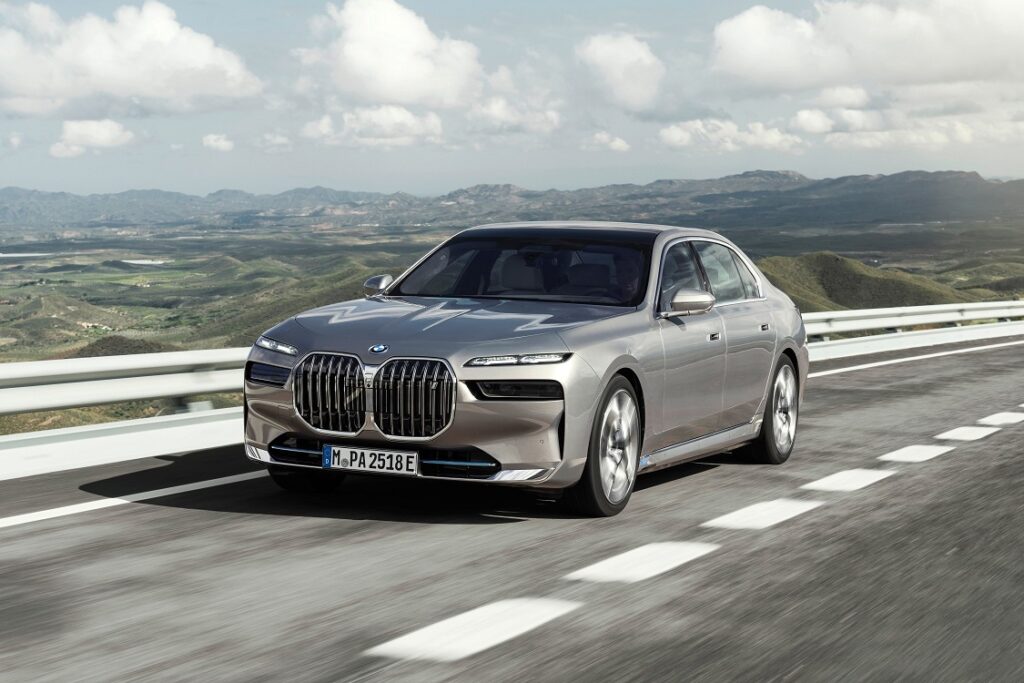Europe’s LCV market enters 2023 with a glimmer of hope
27 January 2023

The EU light-commercial vehicle (LCV) market ended 2022 with a downturn similar to that recorded in November. However, there is a glimmer of hope for a recovery in 2023.
With just over 120,000 new LCV registrations in December, the EU market contracted by 5.1% year on year, according to the latest data from the European Automobile Manufacturers’ Association (ACEA). This aligns with the 4.5% downturn in November but adjusted for the extra working day in December 2021, Autovista24 estimates that the market decline improved to about 2%.
Nevertheless, persistent declines in the LCV market contrast with the five consecutive months of growth in EU new-car registrations. This points to the LCV sector still being more adversely affected by the pre-existing semiconductor shortages and supply challenges resulting from the war in Ukraine and COVID-19 lockdowns in China.
Outside of the EU, LCV registrations in the combined EFTA markets of Iceland, Norway, and Switzerland posted year-on-year growth of 9.5% last month. However, there was no respite for the UK’s LCV market, which tumbled by 25.8%. This resulted in a Europe-wide fall in LCV registrations of 8.3%, following the 7.9% drop in November.
Costs and lead times stifle recovery
Of the four major EU LCV markets, France and Italy suffered double-digit year-on-year declines of 14.6% and 11.5%, respectively. Conversely, Germany and Spain enjoyed respective double-digit growth of 19% and 12.4%.
In the year as a whole, however, all four markets contracted by more than 10%. Spain fared the worst, with fewer than 120,000 LCV registrations equating to a year-on-year downturn of 21.3%. This pales into insignificance compared to the 62.5% contraction of Austria’s LCV market in 2022. Cyprus was the only EU member state to post growth last year, of just 1.2%.
Across the EU, there were fewer than 1.28 million new LCV registrations last year, down 18.1% on 2021. However, this downturn was an improvement on the 19.3% decline in the year to November.
The combined EFTA markets performed slightly better, declining 13.2% year on year, but the UK contracted by 20.6%. Accordingly, the total European LCV market declined by 18.4% last year, with fewer than 1.62 million registrations.
Semiconductor shortages should continue to ease this year, albeit with a more positive impact on supply in the passenger-car sector, and the economic outlook has improved in recent months. Nevertheless, high inflation, interest rates, and energy costs are adding operational costs for businesses, which will invariably impact demand.
‘With energy and raw material costs still on the increase and shortages of some components pushing some model lead-in times out to twelve months, a full recovery of the new LCV market remains some way off,’ commented Andy Picton, chief commercial vehicle editor at Glass’s (part of Autovista Group).
Heavy trucks buck the trend
EU registrations of new medium and heavy-commercial vehicles (MHCVs), with a gross vehicle weight (GVW) over 3.5 tonnes, fared slightly better than LCVs in December, with a year-on-year decline of 3.2%. The MHCV sector consists primarily of heavy trucks, with a gross vehicle weight over 16 tonnes, registrations of which fell only 1.9%.
‘Looking at the region’s largest markets, only Germany remained in negative territory last year (-0.9%). All the other high-volume EU markets for heavy trucks recorded an improvement: Spain (+13.6%), Poland (+6.6%), Italy (+5.1%) and France (+2.3%),’ ACEA highlighted.
The bloc’s whole commercial-vehicle market contracted 5.1%, which Autovista24 estimates to be a fall of about 2% when adjusted for working days. This followed a minimal decline of 0.6% in November but still improved the full-year downturn compared to the 15.5% decline in the first eleven months of 2022.
‘Overall in 2022, the EU commercial-vehicle market contracted by 14.6% to 1.6 million units, with volumes falling below those of the pandemic year of 2020 (1.7 million units). This was primarily caused by the ongoing supply chain issues which affected vehicle availability throughout the year,’ ACEA stated.
With the UK performing in line with the EU and the EFTA markets expanding by 41.7%, MHCV registrations declined 2.4% Europe-wide last month. Moreover, the heavy-truck sector expanded by 7% in 2022 as a whole, driving 3.5% growth in MHCV registrations.
Overall, the European commercial-vehicle market contracted 7.6% year on year last month and fell 15.1% in the year as a whole. Despite the heavy-truck gains, all of Europe’s leading markets posted double-digit declines in 2022. Italy performed comparatively well, contracting by 10.5%, but only five small European markets expanded last year – Cyprus, Estonia, Iceland, Latvia, and Lithuania.



